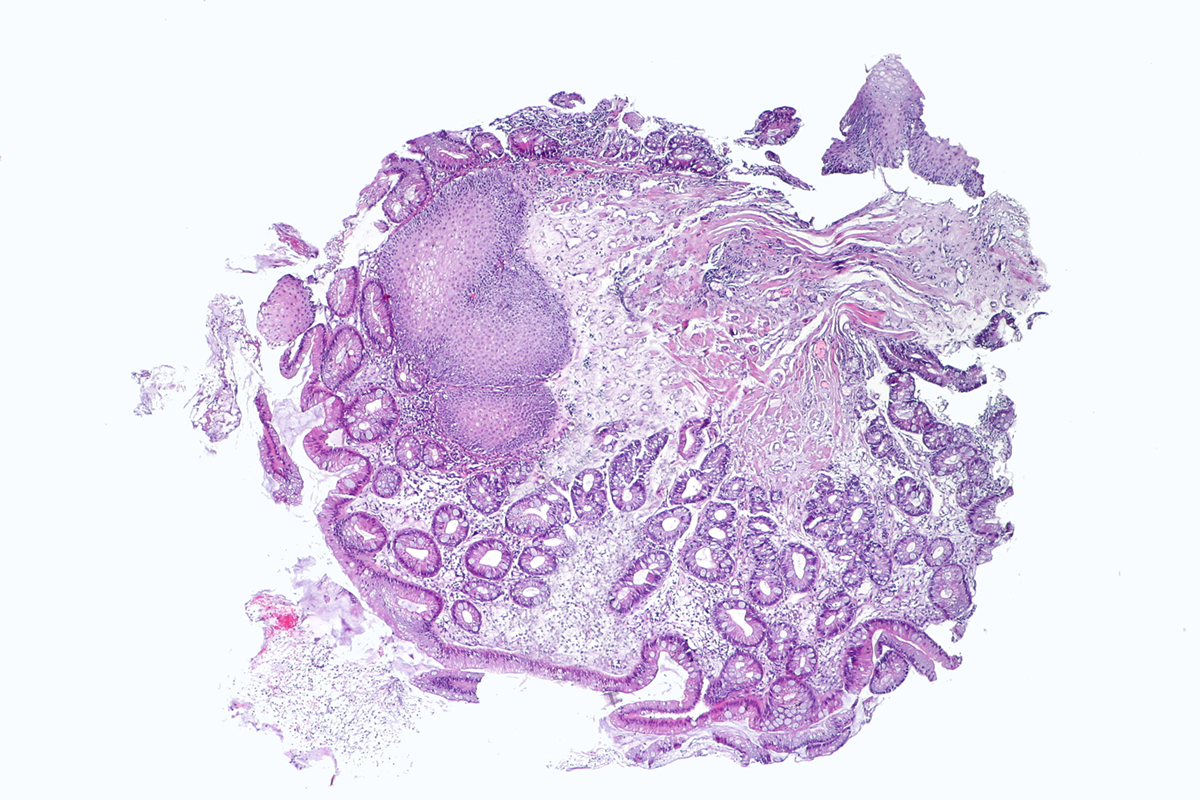
Barrett’s syndrome, also known as Barrett’s esophagus, is a rare but serious medical condition in which the color and constitution of the cells of the inferior portion of the esophagus get compromised. These cells are actually lining the esophagus and they are destroyed because of the prolonged exposure to excessive stomach acid. This medical condition is most frequently diagnosed in people already suffering from gastro-esophageal reflux disease (GERD). GERD is a condition characterized by chronic regurgitation of acid from the stomach into the lower esophagus. The backwash of acid irritates the lining of the esophagus and causes gradual destruction of the protective cells.
Causes of Barrett’s syndrome
Scientists are not absolutely certain about what causes Barrett’s syndrome in different patients. Most of the patients, however, have long history of GERD, which progressively damages the lining of the esophagus. Particular types of cells, characteristic for Barrett’s syndrome, possibly occur as a result of attempt that esophagus makes to heal itself.
However, there is a significant portion of patients who never experienced heartburn or acid reflux. Doctors do not have a definite answer to the question what causes Barrett’s syndrome in these cases.
Symptoms of Barrett’s syndrome
Signs and symptoms of Barrett’s syndrome are tightly associated with acid reflux and they usually include frequent heartburn, chest pain under the breastbone, difficulty swallowing, black and tarry stools, vomiting blood, and unintentional weight loss.For many of the patients there are no obvious signs and symptoms of the disease. However, any of the listed symptoms may be a warning sign. Whoever has a long-term and persistent problem with acid reflux should consult a doctor and discuss the risk of Barrett’s syndrome.
Treatment
Having Barrett’s syndrome should be taken very seriously. This highly unpleasant medical condition can have tremendous effect on patients’ health. All of the patients diagnosed with Barrett’s syndrome are at severely increased risk of developing esophageal cancer. Patients will need to undergo periodic exams in order to detect precancerous cells at the early onset. If the threat is detected on time, patients can be successfully treated to prevent esophageal cancer.
Patients that are still having problems with chronic heartburn and acid reflux will continue their treatment for GERD. In most severe cases, doctors will recommend a surgery to tighten the sphincter that controls the flow of stomach acid.
If the disease has progressed to a more serious level, doctors may even conduct a surgery to remove the esophagus or remove the damaged cells with an endoscope, using heat or using photodynamic therapy, which destroys the damaged cells by making them sensitive to light.

















Your thoughts on this
Loading...